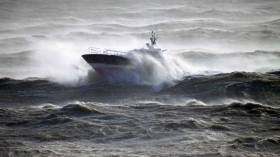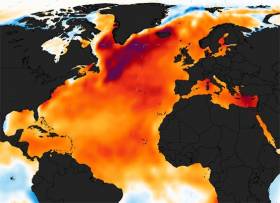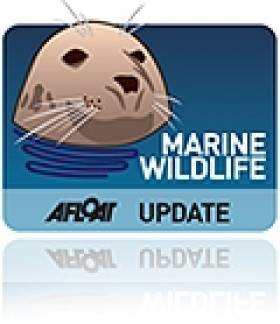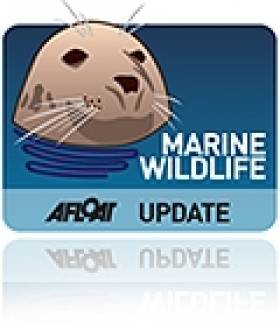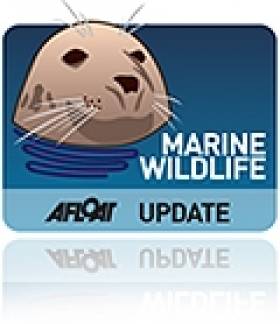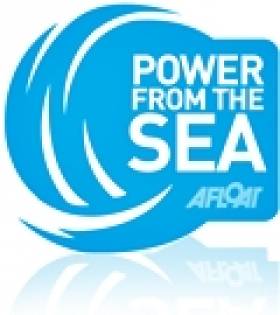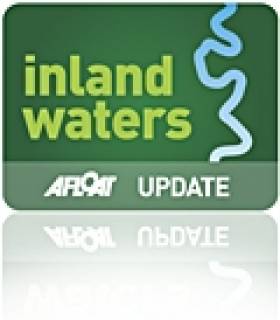Displaying items by tag: Climate Change
Sea Levels Around Ireland Rise by 3cm Per Decade
#RisingSeaLevels - Rising sea levels around Ireland due to climate change are almost 7cm since the early 1990s.
The Irish Examiner writes that this is due to the rising temperature of the planet, greenhouse gas emissions (GHGs) and the melting of glaciers.
And the next five to 15 years is a crucial time period within which to act if we want to halt any permanent changes to the planet.
According to the Environmental Protection Agency (EPA), climate change is most obvious in our changing sea levels.
The newspaper also writes that the number of high quality rivers has halved.
“Observed climate change impacts are most evident in the global temperature record, sea-level rise, loss of glaciers and ice sheets and changes in the nature and intensification of precipitation events,” the EPA report states.
“Since 1993, average sea level has risen around Ireland by just over 3cm per decade,” the report reads.
For further coverage the newspaper has more here
Scholarships For Atlantic Ocean Climate Science Students
#MarineScience - Applications are invited from postgraduate students of marine science, atmosphere and climate-based sciences worldwide to participate in the Atlantic Ocean Climate Scholars Programme in Galway from 12-20 September 2016.
This intensive, accredited workshop will examine how climate and oceans interact, with particular examples from the Atlantic Ocean and higher latitudes.
The programme will be led by an international team of research leaders in climate science with contributions from policy makers and researchers in the field.
A number of scholarships are available to cover travel and accommodation expenses and the deadline for applications is this Friday 3 June 2016.
The relationships between human activities and the oceanic and atmospheric processes that drive our climate will be investigated in the context of the latest IPCC Assessment Report published in 2013.
Critical elements of the global climate system will be scrutinised with special reference to the Atlantic Ocean and its ecosystems. Ocean observation programmes, new technologies, and model outputs will be evaluated in the context of societal and governmental responses to climate change.
Workshop activities will include presentations, field trips and practical data sessions.
Applicants can apply online until 1800 UTC on Friday 3 June. Further information is available by emailing [email protected] or [email protected].
The Atlantic Ocean Climate Scholars Programme is a collaboration between the Strategic Marine Alliance for Research & Training (SMART) based in GMIT, NUI Galway, the Alfred Wegener Institute (AWI), the Partnership for the Observation of the Global Ocean (POGO), the Helmholtz Climate Programme REKLIM and is supported by the Nippon Foundation.
More Winter Floods, Stress On Coastal Habitats: What Climate Change Means For Ireland
#ClimateChange - Models to predict the future climate indicate that global temperatures will rise by an average of as much as 4.5C by the end of this century, bringing a rise in sea levels and changes to rainfall patterns.
And these changes in the weather are already being felt in Ireland, according to Met Éireann's head of climatology Séamus Walsh, who says that even slight shifts, such as an increase in the number of warm days over 20C, have "a knock-on effect on natural ecosystems" that have adapted to Ireland's climate.
"Fragile habitats in vulnerable upland, peatland and coastal areas will come under increasing stress," he adds, noting also a 5% increase in rainfall over the last three decades, more so in the West and North West.
"Climate projections for rainfall have greater uncertainty than for temperature," he explains. "They indicate that overall rainfall amounts in Ireland might decrease slightly, summers are likely to become drier while winters may be wetter, especially in the west and north."
There are also indications of an increase in the number of very wet days – days with rainfall over 20mm – which means that such projections, when applies to river flows, show "an increased risk of winter flooding, an increased risk of short duration ‘flash’ floods and to possible water shortages in summer months due to higher temperatures and lower rainfall.
"The rise in sea levels will make low lying coastal areas more prone to flooding, especially from storm surges," he adds.
Met Éireann has more on the story HERE.
Climate Change Rapidly Warming World’s Lakes Says New Long-Term Study
#MarineScience - Climate change is rapidly warming lakes around the world, threatening freshwater supplies and ecosystems, according to a new study spanning six continents.
More than 60 scientists took part in the research, published in the journal Geophysical Research Letters and announced at the fall meeting of the American Geophysical Union on Wednesday 16 December.
The study – based on global analyses including unique long-term data from the Marine Institute's catchment research facility at Newport, Co Mayo – found that lakes are warming an average of 0.34C, or 0.61F, each decade.
That's greater than the warming rate of either the oceans or the atmosphere, and it can have profound effects, the scientists say.
At the current rate, algal blooms – which can ultimately rob water of oxygen – are projected to increase 20 percent in lakes over the next century. Algal blooms that are toxic to fish and animals would increase by five percent.
These rates imply that emissions of methane, a greenhouse gas 25 times more powerful than carbon dioxide, will increase four percent over the next decade.
"Lakes are important because society depends on surface water for the vast majority of human uses," said co-author Stephanie Hampton, director of Washington State University's Center for Environmental Research, Education and Outreach.
"Not just for drinking water, but manufacturing, for energy production, and for irrigation of our crops. Protein from freshwater fish is especially important in the developing world."
Temperature is one of the most fundamental and critical physical properties of water. It controls a host of other properties that include intricate living processes that have evolved within strict boundaries.
When the temperature swings quickly and widely from the norm, life forms in a lake can change dramatically and even disappear.
"These results suggest that large changes in our lakes are not only unavoidable, but are probably already happening," said lead author Catherine O'Reilly, associate professor of geology at Illinois State University.
Earlier research by O'Reilly has seen declining productivity in lakes with rising temperatures.
Funded in part by NASA and the National Science Foundation, the study is the largest of its kind and the first to use a combination of long-term hand measurements and temperature measurements made from satellites, offsetting the shortcomings of each method.
Study co-author Simon Hook, science division manager at the NASA Jet Propulsion Laboratory, said satellite measurements provide a broad view of lake temperatures over the entire globe. But they only measure surface temperature, while hand measurements can detect changes in temperature throughout a lake. Also, satellite measurements go back only 30 years while some lake measurements can go back more than a century.
Lough Feeagh in Co Mayo was one of 235 lakes in the study that have been monitored for at least 25 years. While that's a fraction of the world's lakes, they contain more than half the world's freshwater supply.
The Marine Institute measures the surface water temperature of Lough Feeagh as part of the long term ecological monitoring of the Burrishoole catchment. The Burrishoole research station is an internationally important index site for diadromous fish monitoring, and water temperature is a crucial variable controlling growth, migration and survival of salmon, trout and eel in the catchment.
"The inclusion of data from Lough Feeagh in this study highlights the value of collecting local environmental long term data to inform global analyses," said Dr Elvira de Eyto, a biologist at the Marine Institute facility in Burrishoole and one of the studies co-authors.
Marine Institute chief executive Dr Peter Heffernan added: "The sharing of such data with global scientific networks makes an important contribution to worldwide climate change analyses, and our understanding of how the warming climate will affect our valuable aquatic resources."
The surface water of Lough Feeagh has warmed at a rate of 0.35C per decade between 1985-2009, although the rate of warming was lower than some other northern hemisphere lakes.
"We want to be careful that we don't dismiss some of these lower rates of change," said Hampton. "In warmer lakes, those temperature changes can be really important. They can be just as important as a higher rate of change in a cooler lake."
The researchers said various climate factors are associated with the warming trend. In northern climates lakes are losing their ice cover earlier, and many areas of the world have less cloud cover, exposing their waters more to the sun's warming rays.
Many lake temperatures are rising faster than the average air temperatures. Some of the greatest warming is seen at northern latitudes, where rates can average 0.72C, or 1.3F, per decade.
Warm-water, tropical lakes may be seeing less dramatic temperature increases, but increased warming of these lakes can still have large negative impacts on fish. That can be particularly important in the African Great Lakes, home to one-fourth of the planet's freshwater supply and an important source of fish for food.
In general, the researchers write: "The pervasive and rapid warming observed here signals the urgent need to incorporate climate impacts into vulnerability assessments and adaptation efforts for lakes."
Irish Coasts Vulnerable to Climate Change
Bray, Co Wicklow was the location for a unique Climate Change event on Friday (20th November) hosted by Seán Kelly MEP on the importance of achieving a global deal to reduce carbon emissions in Paris next month.
"I am honoured to have been chosen to be part of the delegation that will represent the European Parliament at the global UN Climate Change Conference in Paris in December and will be the only Irish MEP to do so. We received our mandate with a huge majority from the Parliament last month and we are ready to work in Paris to get our key points across," Mr Kelly told attendees.
"Climate Change is truly one of the key challenges of this century. Failure to address it effectively will result in major adverse impacts that will affect all countries.
"Ireland, for example, is particularly vulnerable to loss of coastal assets due to rising sea levels, along with increased precipitation and the resulting flood risks - all of these would prove hugely costly, both socially and economically.
"The bottom line is, we need an ambitious and binding global agreement and we will push for that in Paris. If EU ambition is matched globally, we keep jobs and economic growth here, while meeting the 2oC objective," the MEP added.
Climate change is a cross sector challenge according to Mr Kelly which requires a concerted global effort. "We need to take action to limit these temperature increases, but we have a challenge to do so while meeting the parallel challenges of ensuring food security and maintaining EU competitiveness."
"The bottom line is, we need an ambitious and binding global agreement and we will push for that in Paris. If EU ambition is matched globally, we keep jobs and economic growth here, while meeting the 2oC objective," he said.
Event speakers included Jean-Pierre Thebault, French Ambassador to Ireland, Eamon Ryan, Leader of the Green Party, Mauro Poinelli, Head of Unit Environment, Forestry and Climate Change, European Commission, who examined the agricultural side of the debate and Neil Walker, IBEC’s Head of Infrastructure, Energy and Environment who presented the Irish business perspective.
Climate Change Driving Fish Species From Tropics Say Researchers
#MarineWildlife - Climate change is driving fish species away from the tropics for more hospitable, warming waters elsewhere, according to scientists from the University of British Columbia.
RTÉ News has more on the story, which outlines that even in the best case scenario, the waters of the tropics are set to warm by one degree Celsius, promoting fish to migrate some 15 kilometres every decade towards the Arctic and Antarctic.
The Canadian university researchers used climate modelling based on findings from the past few decades to predict the situation for more than 800 fish species and marine invertebrates – and the results could be catastrophic for all coastal communities as the ecosystem changes.
Whale Poo Could Be Key To Combating Climate Change
#MarineWildlife - "What if whales were nature's ultimate geoengineers?" That's the question Philip Hoare poses on the Guardian's Comment Is Free section upon the news that US scientists have identified cetacean waste as a potentially pivotal link in the climate change chain.
Marine scientists from the University of Vermont compiled decades' worth of research in their new report that claims whale faeces – and deceased whales on the ocean floor – might comprise "massive carbon sinks" absorbing the CO2 human industry puts into the environment while also providing nutrients for other marine wildlife.
Indeed, it's now thought that areas where cetacean populations have shown signs of recovery after decades of hunting are also seeing "higher rates of productivity" among commercial fishing species.
The new report also supports the notion that climate change "may have been accelerated by the terrible whale culls of the 20th century" that removed a necessary balancing effect to counter the huge levels of man-made carbon emissions.
As Hoare writes: "A burgeoning global population of cetaceans might not just be good for the whalewatching industry, they may play a significant role in the planet's rearguard action against climate change."
The Guardian has much more on the story HERE.
Jellyfish On The Rise As Ireland's Waters Warm
#Jellyfish - Jellyfish are coming to Ireland's shores in bigger numbers than ever before, as the Belfast Telegraph reports.
The "worrying" finding comes with the latest figures of the annual Coastwatch survey of the island of Ireland that concluded in mid October.
Stats collected from volunteers around the coast show that jellyfish have been sighted in more areas and in greater numbers than any other time in the 25-year history of the survey - most likely the result of climate change.
Among them was an "absolutely enormous" specimen more 5 feet in diameter, found on the West coast.
"What this says to us is that our waters are warming," said Coastwatch International co-ordinator Karin Dubsky, who highlighted an explosion in the numbers of small brown jellyfish "which do a lot of damage to wildlife".
The Belfast Telegraph has more on the story HERE.
Sea Power Projects Could Be Good for Marine Wildlife Says Report
#POWER FROM THE SEA - Marine-based renewable energy projects could be introduced without a damaging impact on marine wildlife, according to a new briefing paper from Friends of the Earth.
Business Green reports on the paper from the environmental campaign group, written by marine ecologist Martin Attrill of Plymouth University's Marine Institute, which draws together research on the biodiversity impact of offshore wave energy, tidal energy and wind power schemes.
Attrill found that the deployment of sea energy arrays could ultimately benefit many marine species by reducing the effects of fishing activity, and even acting as reefs to attract new sea life.
He cites the example of a grey seal colony in Strangford Lough that has steered clear of a nearby tidal turbine over the three years of its operation in the lough.
However, Business Green says the report makes clear that the deployment of such projects "must be done sensitively", noting that any negative impact on biodiversity "would be significantly lower than the damage done to marine wildlife by rising sea levels caused by climate change".
Business Green has more on the story HERE.
New Climate Model Will Chart Climate Change on Mayo Rivers
Launching the publication of the final report on RESCALE project, Minister Smith said that the project was a major milestone in our understanding of the effects of climate change on sensitive upland catchments in the west of Ireland. "While global climate change is a worldwide phenomenon, the research findings in this report provide information at the local level that will be invaluable to fisheries and land use managers," said the Minister. "Practical research work such as RESCALE is essential if we are to plan for the future management of our valuable agriculture, fisheries and forestry resources in the west of Ireland."
The project is studying data from an unbroken record of information on water temperature, air temperature, river discharge, rainfall and a host of other factors which exists for the catchment dating back to the 1950s for the Burrishoole river. This information collected at the Furnace facility and the neighbouring Met Eireann synoptic station, is invaluable as a resource, not only for measuring physical change over the past sixty years, but also as a proven yardstick to "ground-truth" any computer-generated models describing the likely effects of global warming. Minister Smith said "I am very impressed with the work being done here in Newport and the high level of collaboration between the Institute and the Universities on marine research and its practical application to real situations to help inform decision making into the future."



























